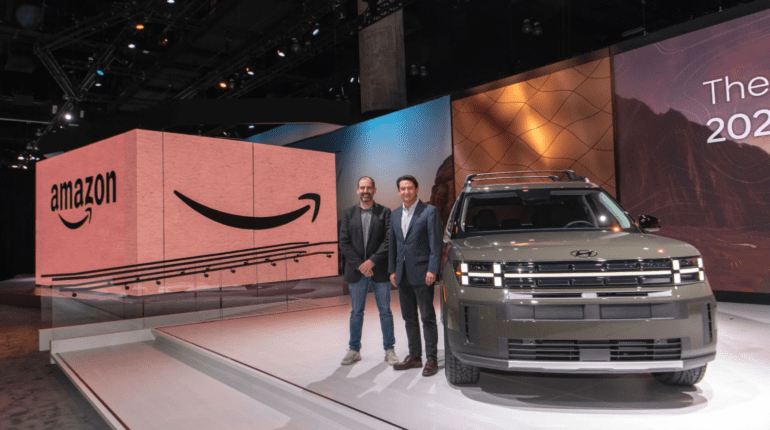TL;DR:
- Amazon and Hyundai joined forces for online car sales in the US in 2024.
- Hyundai becomes the inaugural brand available for purchase on Amazon’s digital storefront.
- Customers can browse, select, and buy cars online, with options for pickup or delivery.
- Hyundai embraces a cloud-first technology strategy by migrating applications to Amazon Web Services (AWS).
- Integration of Amazon Alexa into Hyundai vehicles for a more interactive driving experience starting in 2025.
- Amazon’s Olympus aims to revamp various platforms, including online retail, Alexa, and AWS.
- The expected official announcement from AWS is in December.
Main AI News:
In a bold move set to reshape the automotive industry, tech giant Amazon, currently developing its highly anticipated LLM codenamed Olympus, has inked a strategic alliance with Hyundai. The result? Online vehicle sales in the United States are slated for a grand debut in 2024, with Hyundai at the forefront of this game-changing partnership.
This visionary collaboration is poised to redefine the vehicle purchasing experience, seamlessly integrating Amazon’s omnipresent Alexa into Hyundai’s upcoming models and ushering in a new era of customer engagement and business operations, all powered by Amazon Web Services (AWS).
The stage is set for auto dealers to embrace the future, with 2024 marking the commencement of vehicle sales through Amazon’s revered US storefront. Hyundai takes the helm as the inaugural brand available for purchase in this digital showroom. Customers will revel in an innovative online shopping experience, affording them the freedom to peruse, choose, and acquire their desired automobiles from the comfort of their screens. Whether they opt for a traditional dealership pickup or doorstep delivery, Amazon’s impeccable service remains at the core.
The process itself is elegantly simple yet technologically advanced—prospective buyers can effortlessly search for their ideal vehicles on Amazon, all within the familiar confines of the Amazon interface. The future of car buying has never looked brighter.
But this partnership isn’t just about online sales; it’s about a holistic transformation of Hyundai’s operations. A multi-year agreement paves the way for migrating on-premises applications to AWS, marking a strategic shift towards a cloud-first technology approach. Hyundai’s focus areas span manufacturing, supply chain optimization, security, disaster recovery, and the development of connected vehicles. Leveraging AWS’s formidable capabilities, including artificial intelligence (AI) and the Internet of Things (IoT), Hyundai is poised to ascend to new heights.
Looking beyond 2024, Hyundai’s next-generation vehicles, starting from 2025, will seamlessly incorporate Amazon’s Alexa, offering drivers a truly interactive and responsive driving experience. From playing music to setting reminders, updating to-do lists, and managing smart home devices—all can be effortlessly accomplished on the go.
In the realm of generative AI, Amazon’s Olympus has reemerged from a period of relative quiet. It’s expected to usher in a new era of innovation across Amazon’s diverse platforms, including the online retail juggernaut, the indomitable Alexa voice assistant, and the formidable AWS. Olympus is determined to surpass its predecessor, “Titan,” which faced delays last year due to performance issues in comparison to OpenAI’s ChatGPT. The official announcement from AWS is eagerly anticipated this December.
Conclusion:
The partnership between Amazon and Hyundai signifies a significant shift in the automotive market. Online car sales, powered by Amazon, will offer customers a streamlined and convenient buying experience. Hyundai’s adoption of AWS and the integration of Alexa into their vehicles demonstrate a commitment to technological innovation. Amazon’s Olympus also hints at potential advancements in various tech sectors. This partnership underscores the importance of digital transformation and customer-centric solutions in the evolving automotive landscape.

